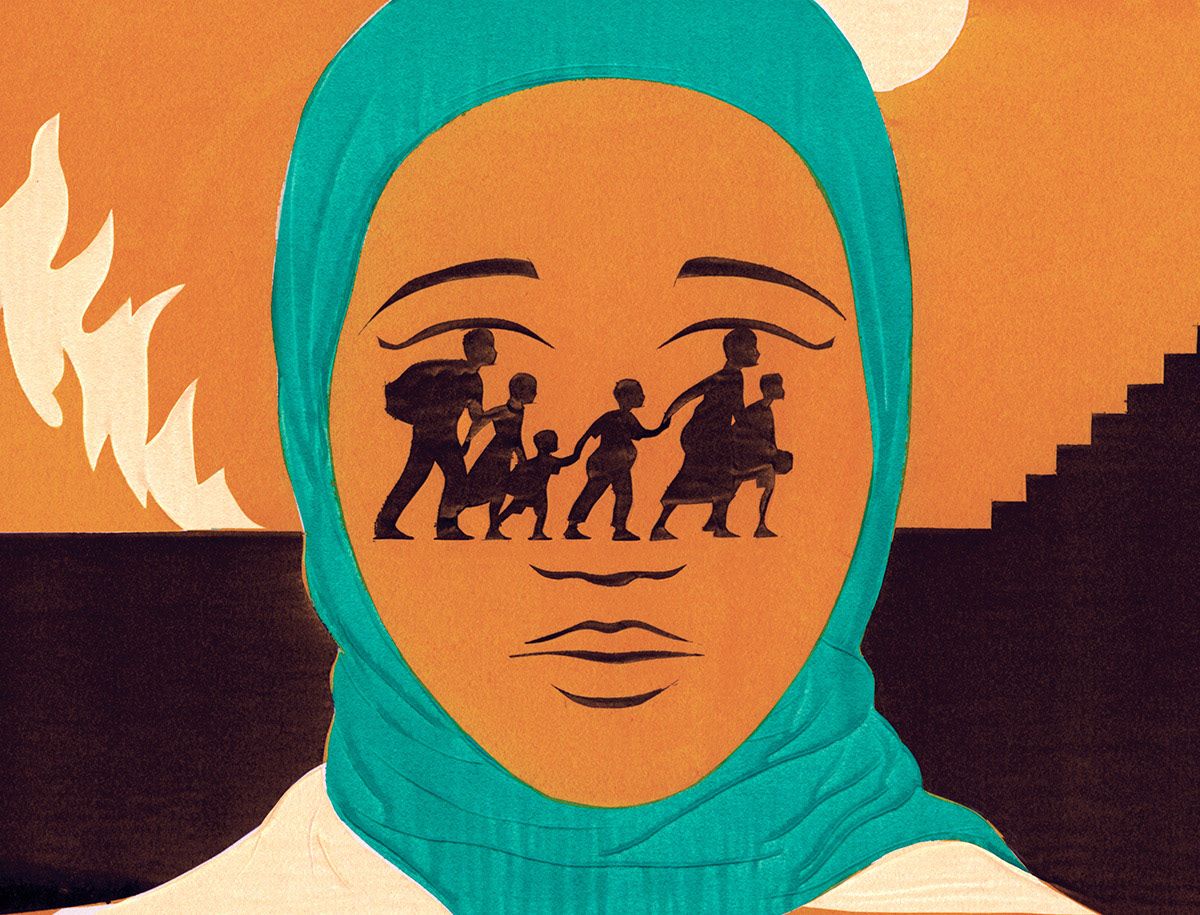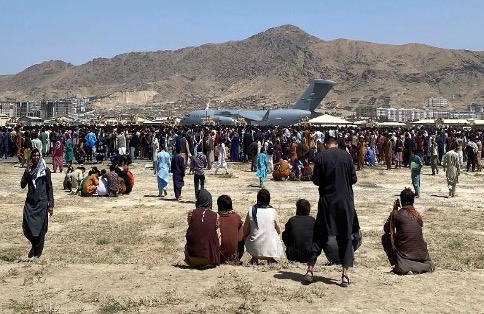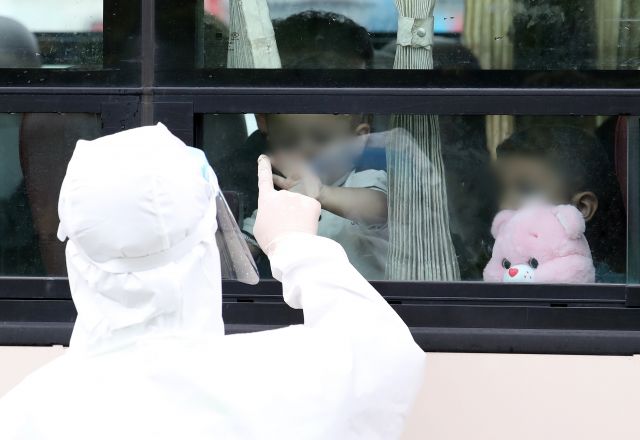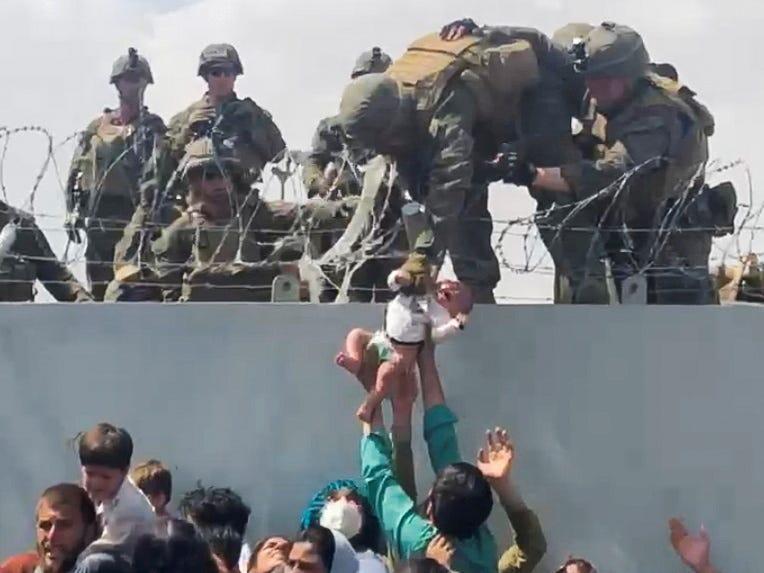
© alexnabaum.com
Acceptance of Afghanistan Refugees:
Where Should Korea Stand on Afghanistan Refugees?
After the withdrawal of US forces, Afghanistan was completely taken over by the Islamic fundamentalist terrorist group, Taliban, and a mass exodus took place. Unfortunately, the international community’s reaction to accepting Afghan refugees is negative. Refugees were mainly transferred to neighboring countries or Muslim countries such as Pakistan and Uzbekistan, which have the same culture. However, this time, neighboring countries are blocking the influx of refugees by increasing their military forces in the border area.
Under such circumstances, the Korean public’s reaction was polarized when the media reported that the US was considering accepting Afghan refugees to the US military bases abroad, including those in South Korea. In a situation where accepting refugees into homelands is highly unwelcomed, the South Korean government provoked controversy by announcing that about 400 Afghan refugees, who were involved in the government’s Afghanistan reconstruction project, will be admitted to the country as “special contributors.” In line with the growing controversy, The Sogang Herald will delve into the conflicting arguments regarding accepting refugees and the direction of South Korean refugee policy in the future.

The Status of Afghanistan Refugees in Korea
The Afghan refugees who entered South Korea are temporarily accommodated in Jincheon-gun, North Chungcheong Province. The government started to refer to them by the new status “special contributors1,” which is not included in the existing laws. While Refugees have a lot of documents to submit, and the recognition process is very complicated, special contributors would be exempt from the refugee recognition process. In addition, when the enforcement ordinance is amended, special contributors will be issued an F-2 visa and able to freely engage in employment activities while staying in Korea for up to five years.
The reason why the government decided to accept the people only with special contributions and refer to them as such instead of “refugee” is that the government was fully aware of the strong public opinion against accepting refugees in Korea, especially looking back on the Yemeni refugee crisis in 2018. It is meant to suggest that Afghan assistants are different from the refugees with no contribution to Korea. It seems that the government’s intention to justify allowing the refugees to enter the country has been successful to some extent. In fact, a moral feeling has been formed among the people that refugees who have worked for Korea should not be abandoned.
However, some point out that misunderstandings and prejudices against refugees have not been resolved. Also, some claim that by avoiding mentioning “refugee” and making a clear division between the special contributors and general refugees, the government is practicing discrimination. Allowing only those with qualifications or merits to enter will be viewed as a one-time event that does not correspond to the humanitarian standpoint of the refugee advocates. Despite these concerns, the government dismissed those remarks by saying that Afghans who come to Korea are highly educated and know liberal ideology. The government also added that the special residence permit system was designed with reference to the cases where countries such as the US and the UK accept them as special immigrants rather than refugees.
Still, accepting refugees is a sensitive topic in South Korea, and there are a considerable number of disputes between opponents and advocates. When looking through the debate, underlying is the widespread hatred for refugees in the society, so it is necessary to examine the basis of the prevalent hatred for refugees in Korean society.

Hatred Toward Refugees in Korea
In 2018, at the time of the Yemeni refugee crisis on Jeju Island2, hundreds of people applied for refugee status at once in Korea, and great social chaos was caused in the situation without being prepared to accept refugees. Many people, more than 700,000, signed a petition to the Cheongwadae to express their unwillingness to accept refugees, and hate remarks toward Islamic refugees were rampant on the Internet.
The exaggerated news and stories about refugees ignited the people’s fear and hatred. The Islamic culture of the refugees is unfamiliar to Koreans due to the geographical distances, so the people were vulnerable to the news describing the refugees as potential criminals or terrorists. The large-scale refugee crisis in Europe has been reported through the media and made Korean people even more anxious. Since the European powers had historical and political responsibilities for the countries they occupied during the imperial era, they signed the Refugee Convention3 to recognize the obligations to accept refugees. So far, countries such as Germany, France, and the UK have accepted many refugees. Unfortunately, Islamic law, Sharia, was not easily assimilated or absorbed, but rather ghettoized4, and as a result, social chaos, terrorism, crime, security issues, and serious social conflicts were caused. Considering that the severe social aftereffects occurred in these countries, the refugee accommodation process is now evaluated as a failure of multicultural policy. However, statistically, the correlation between refugees and the crime rate is low. While the number of refugees who entered Germany in 2016 was 455,210, a threefold increase from 148,215 in 2015, the crime rate increased by only 0.7%. Even in 2017, 325,370 refugees were accepted, and the crime rate was reported to have decreased by about 9.6% compared to 2016. Of course, crimes committed by refugees indeed occur in Europe. Even so, people should focus on the incident itself rather than raising unreasonable suspicions about the refugees. Crime should be prevented by building a social safety net. Blocking people belonging to a certain group to prevent crime is a violation of human rights. Some suggest that a legal system for unified and integrated settlement of migration and refugees should be prepared under the leadership of the European Union.
Some also point out that receiving refugees is certainly a financial burden on Korea. Once refugee applicants are accepted as refugees, they are provided with quasi-national treatment5, employment, education, social adjustment training, vocational training, and living expenses. Even if the applicants are not recognized as refugees, they can still obtain a humanitarian residence permit6 that allows them to work. A feeling of relative deprivation has grown for self-employed people who are struggling to continue their economic activities in a situation where the COVID-19 is disrupting daily life. Since Korea is a single ethnic group, it has never been mixed with other ethnic groups. The conflict is exacerbating as people who feel insecure due to the prolonged the COVID-19 exclude outsiders and solidify amongst themselves. Some stressed that unconditional opposition can only exacerbate conflict in the irreversible trend of globalization.

Where Should Korea Stand on Refugees?
So far, the South Korean government has shown an ambiguous stance on refugee policies. The advocates argue that refugee rights should be accepted for humanitarian reasons, reminding people of heartbroken scenes of Afghan citizens clinging to planes to escape. Although South Korea was the first in Asia to enact the refugee law, it still lacks personnel in charge of refugee examination or protection facilities, showing that Korea is still far from being an inclusive and multicultural country. Due to a low refugee approval rate, Korea has also been evaluated as a de facto refugee-rejecting country. In the first quarter of 2021, only 0.2% of refugee applicants were recognized as refugees by identifying their stable sojourns and statuses, which is far below the average refugee approval rate in OECD countries of 25%. Some point out that Koreans were once refugees, too. During the tragic Japanese colonial period, Korean independence activists went into exile abroad and lived as refugees. Without international aid, Korea would not have been able to leap forward as an advanced country.
Fortunately, Koreans have a desire to understand who refugees are, where they come from, and why they have come to such distant countries as South Korea. Unlike the Yemeni refugee crisis, Jincheon-gun people, who allowed temporary residence of refugees, were showered with money this time. This was not the first time Jincheon-gun has accepted outsiders. In January 2020, 173 Koreans from Wuhan, China, who entered to avoid the COVID-19, were also allowed to stay at the Jincheon-gun Human Resources Center. The people were moved by Jincheon-gun’s second big decision to accept Afghan refugees, and the “Buy Jincheon” craze started. Jincheon Mall, an online shopping mall operated by Jincheon-gun, was temporarily suspended due to a flood of orders. People from all over the country flocked to Jincheon, using the coined word “Let’s shower Jincheon with money7.” On the other hand, several presses were criticized for posting photos of the faces of Afghan special contributors who entered the Jincheon-gun Human Resources Development Center. This is because not only it exposed the identities of the entrants, but it also jeopardized the safety of their families remaining in their home countries. Responsible and non-provocative reporting is required because most of the information about Islam is disseminated through the media.
A Turning Point in the Development of Korea’s Refugee Policy
On Sept. 16th, the Resolution urging the establishment of peace in Afghanistan and protection of human rights was passed unanimously at the National Assembly, which demanded the Korean government to make diplomatic efforts, including refugee protection. The resolution expresses concern over the serious human rights violations that are taking place during the transition of the Taliban regime and urges them to take practical measures to ensure women’s rights and universal human values, as they have declared to the international community.
The Afghan refugee crisis is a global tragedy and a common task that cannot be ignored. Due to the rapidly changing international situation, the third and fourth refugee crises may occur following the Yemeni and the Afghan refugee crisis. Considering the economic scale of Korea, hundreds of refugees are not a number that South Korea cannot take. Now is the time to consider the approval process as well as the ways to protect and accommodate them. It is a matter of solidarity and a sense of responsibility that Korea should have for the tragedy of a distant country. It is important to look at the individuals who exist behind the massive figures. If people focus on the stories of individual refugees, they can put themselves in refugees’ shoes. Since the precarious state of the country does not seem to end prematurely, essential protections should be provided to help refugees resettle so that they can rebuild their lives in peace retaining human dignity. Remembering the children who are handed over to the US military over barbed wire and women who are subjected to persecution, Koreans should look for ways to help the victims.
By Min Seung-youn (Int’l & Social Reporter)
piamin03@sogang.ac.kr
1 특별기여자 2 제주 예멘 난민 사태 3 난민협약 4 to treat a particular group in society as if they are different from the other parts of society and as if their activities and interests are not important to other people (Cambridge Advanced Learner’s Dictionary & Thesaurus의 ghettoize 정의 © Cambridge University Press) 5 준국민 대우 6 인도적 체류 허가 7 돈쭐내다 |
